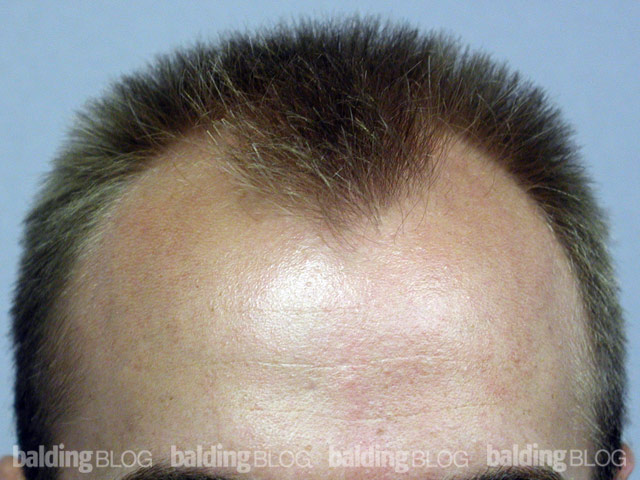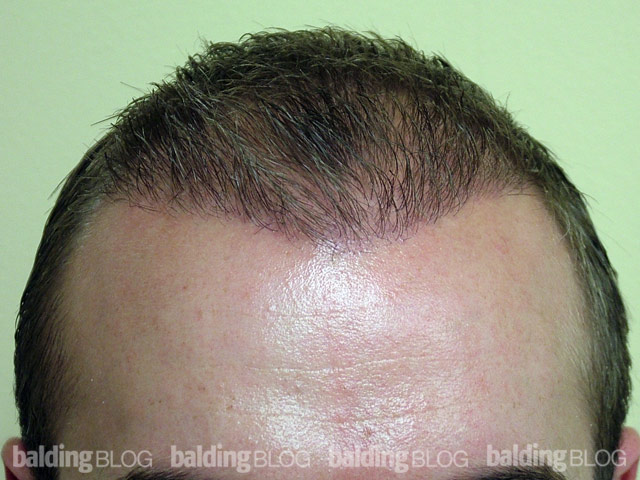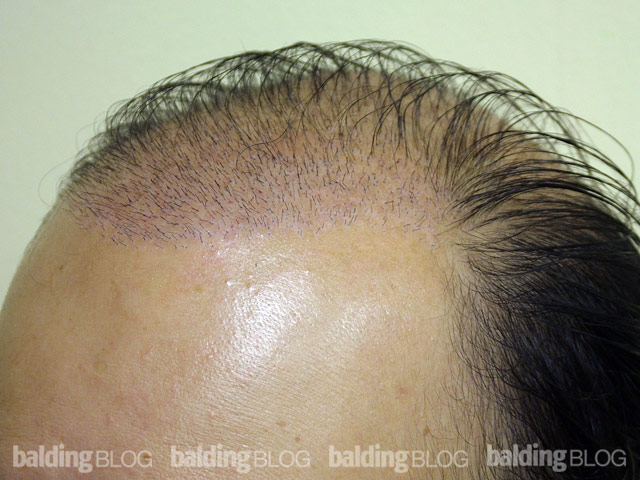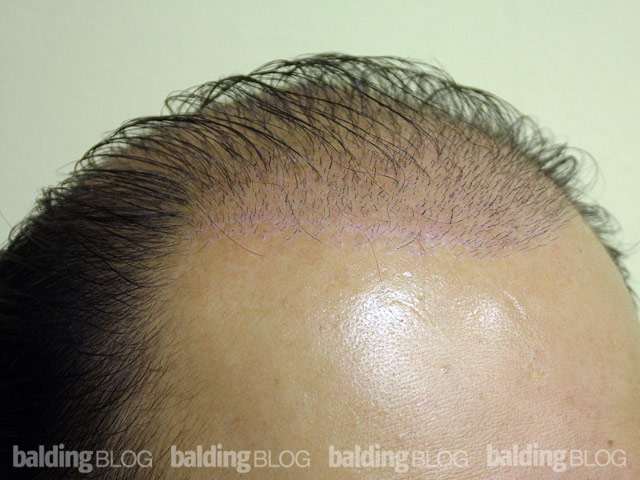This 26 year old man received 2200 grafts into the frontal hairline. He came into my office today asking me if he should do any more transplants. He trusts me and felt that I would give him the correct advice.
His results are remarkably good and he is very pleased with the results. Like most young men, he feels he might be happier with more hair, but he is not at all dissatisfied with the fullness he sees when looking in the mirror. I told him that considering his age and his overall satisfaction with the results, that additional hair transplants should be postponed, and we should watch for more hair loss over the next 5-10 years. If his balding does not progress and his present stage of fullness is maintained by continuing Propecia (he has been taking it for the last three years), then he can increase the fullness with more grafts into the frontal triangle. If, however, his balding pattern should progress to a more advanced pattern, the additional donor hair may be best placed elsewhere on his head, for the best results.
This is a call that could go either way. If he felt that a fuller forelock area was his focus, then I would have no hesitation to fill in the rest of this frontal triangle. Clearly, I am in no rush to take his money and he is in no rush to get more hair, so for the moment, we have decided to wait out the unfolding nature of his future.
Photo on the left is the “before”, from a few years ago. The photo on the right is the “after”, taken today.







